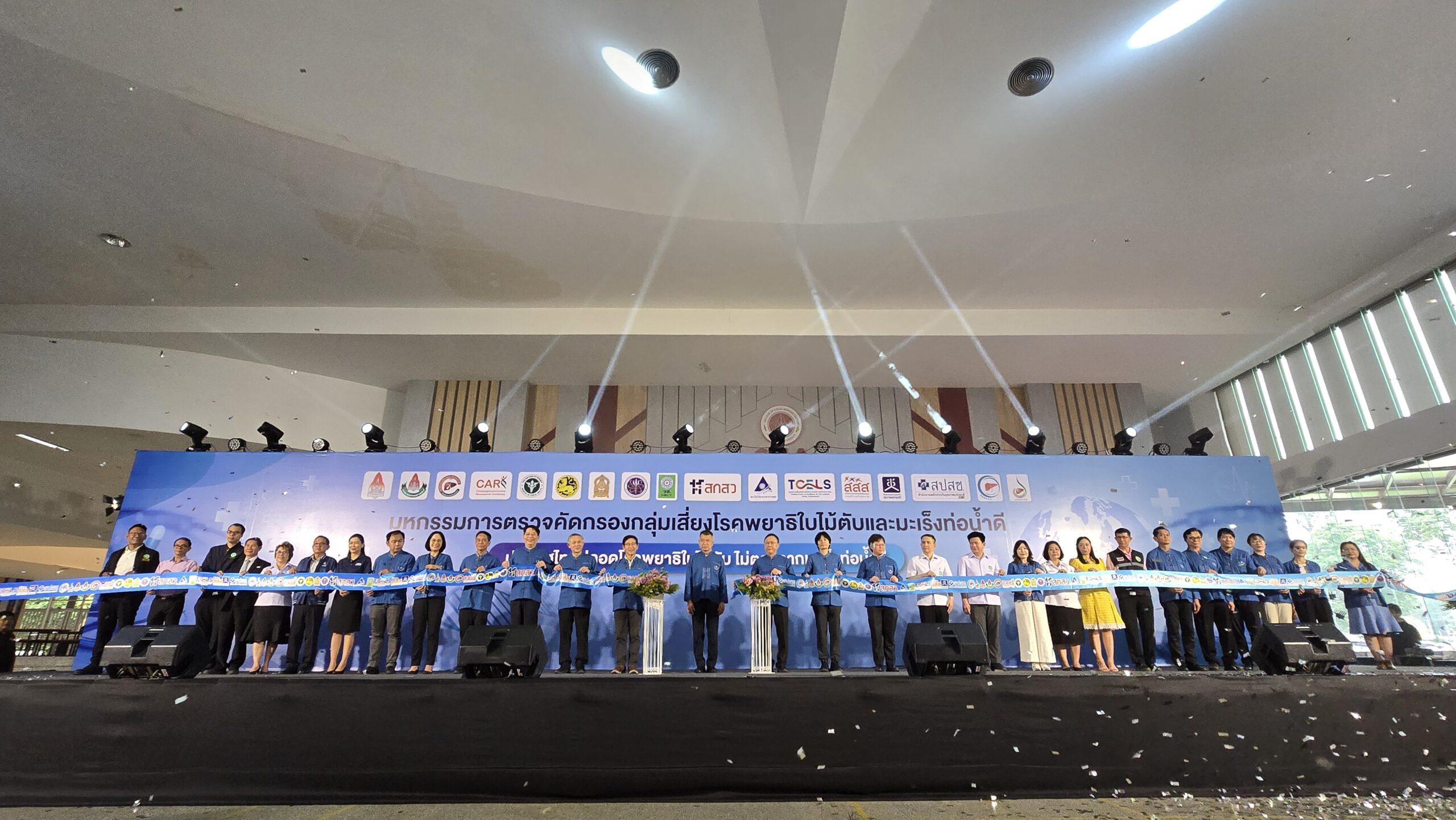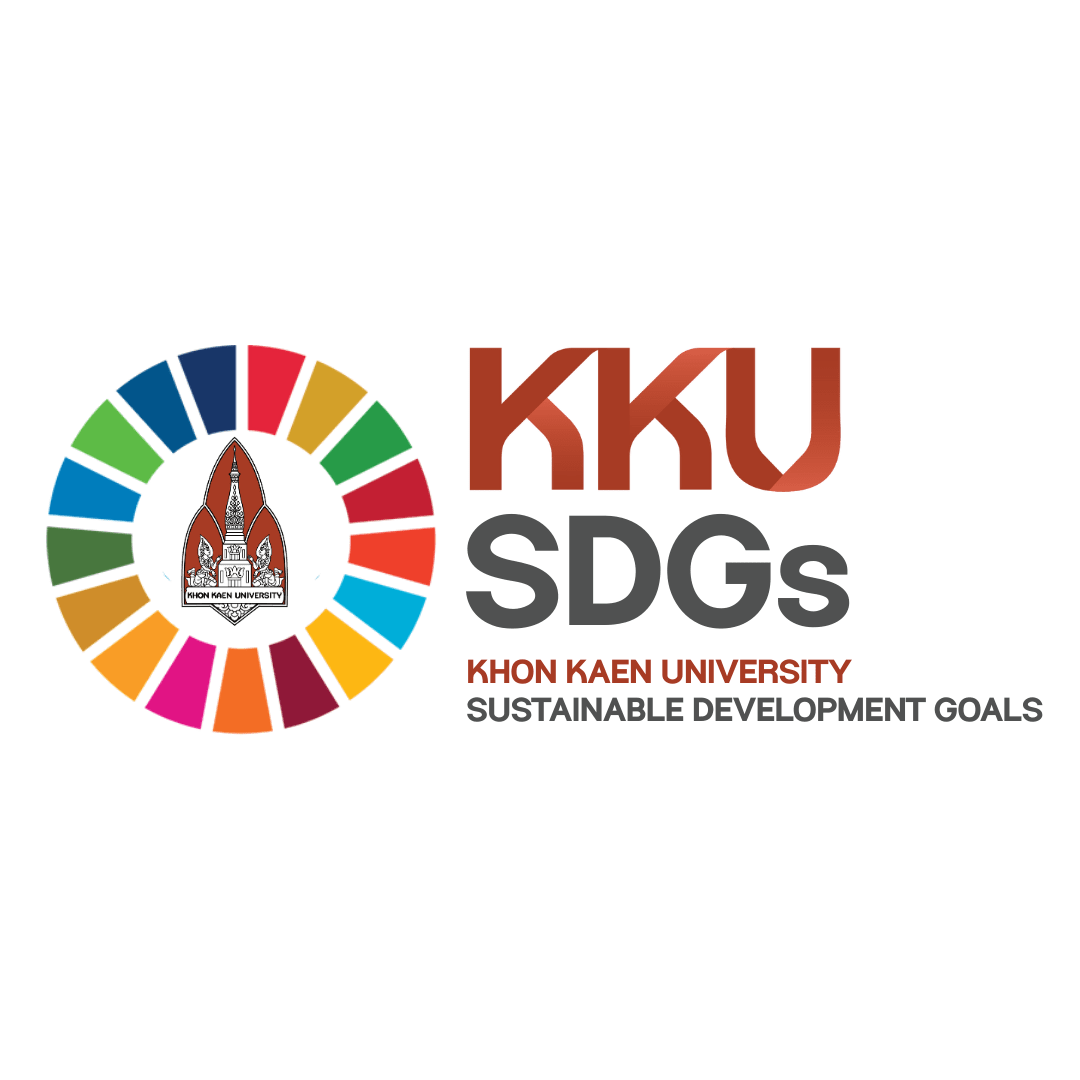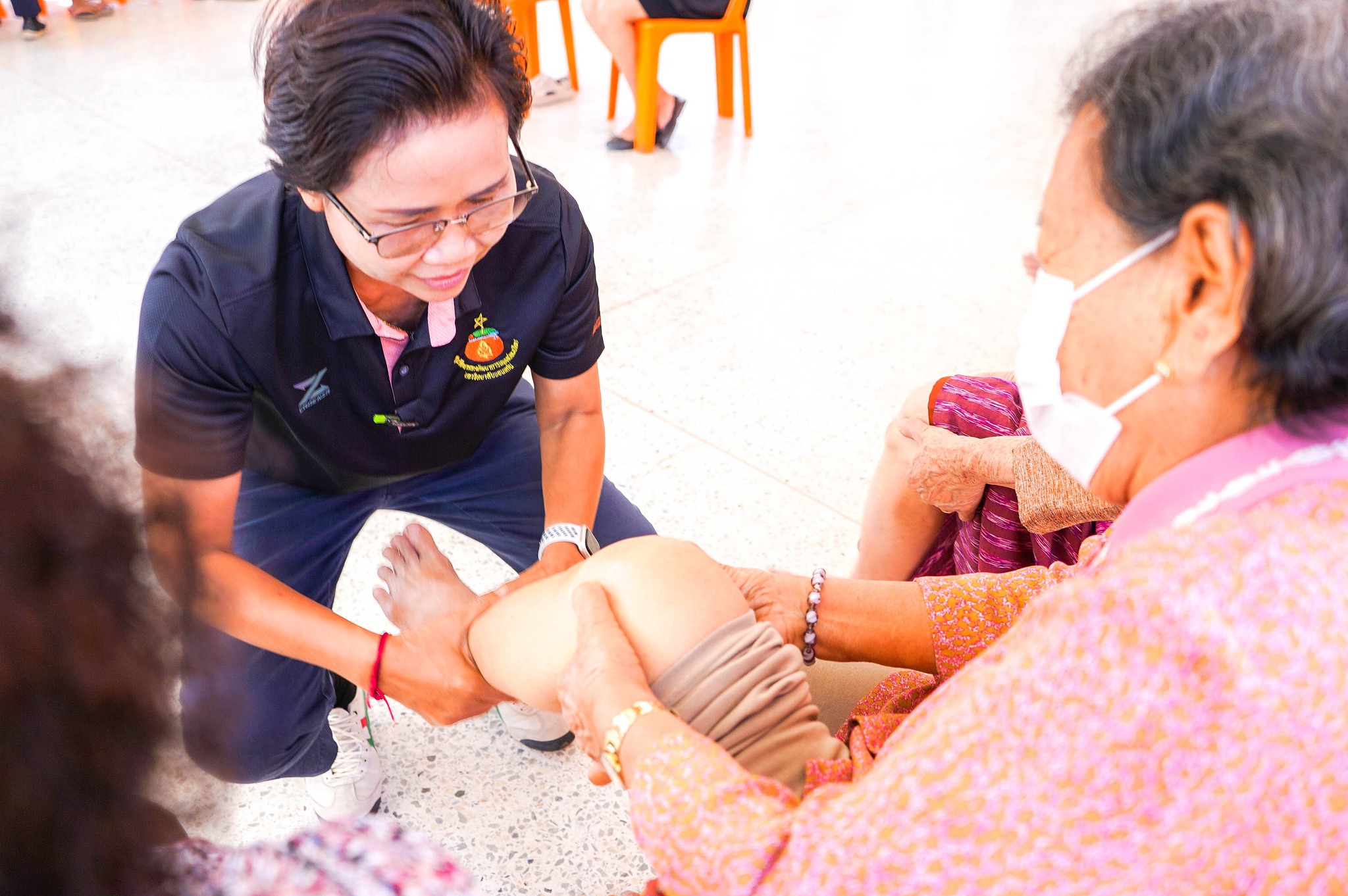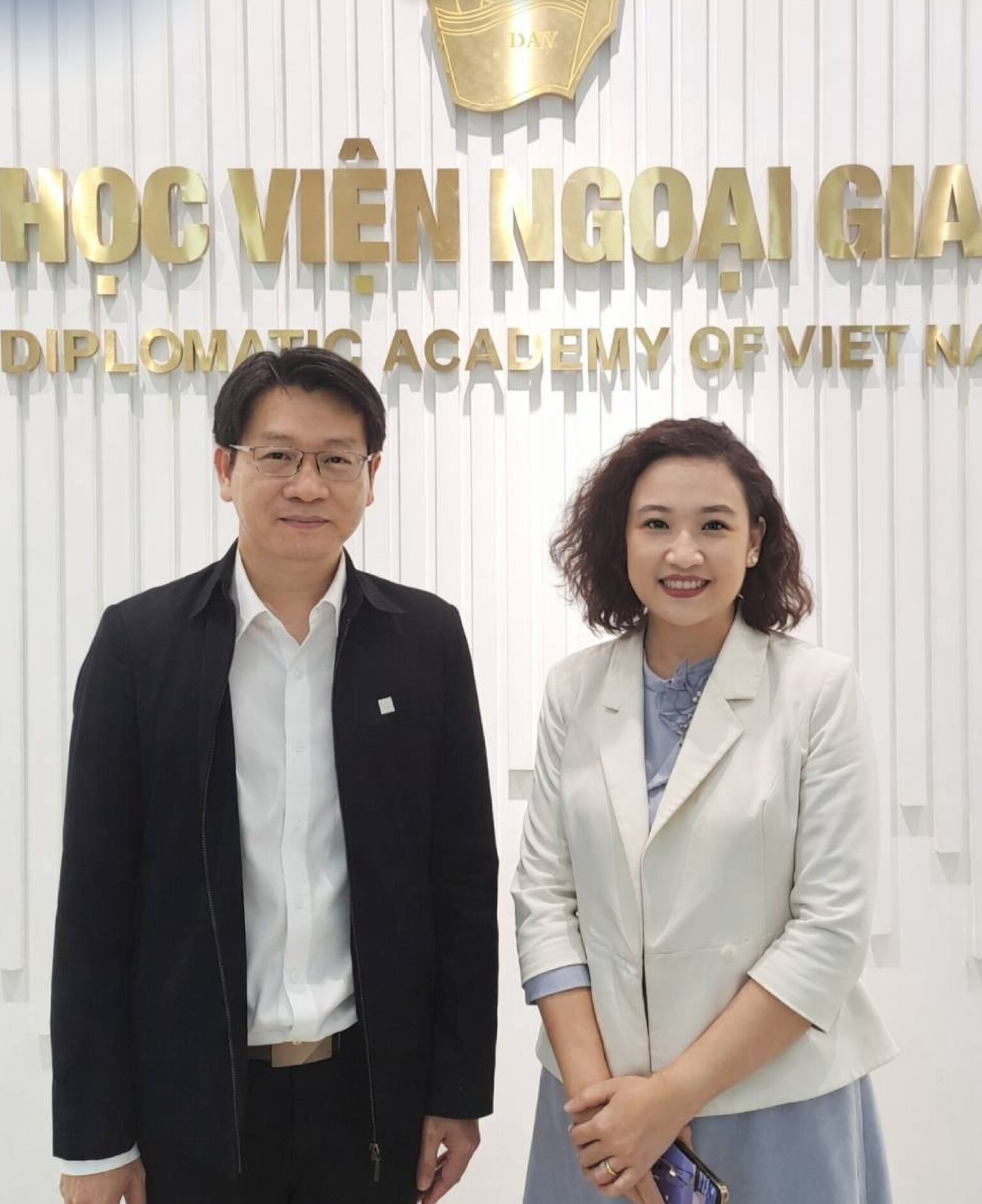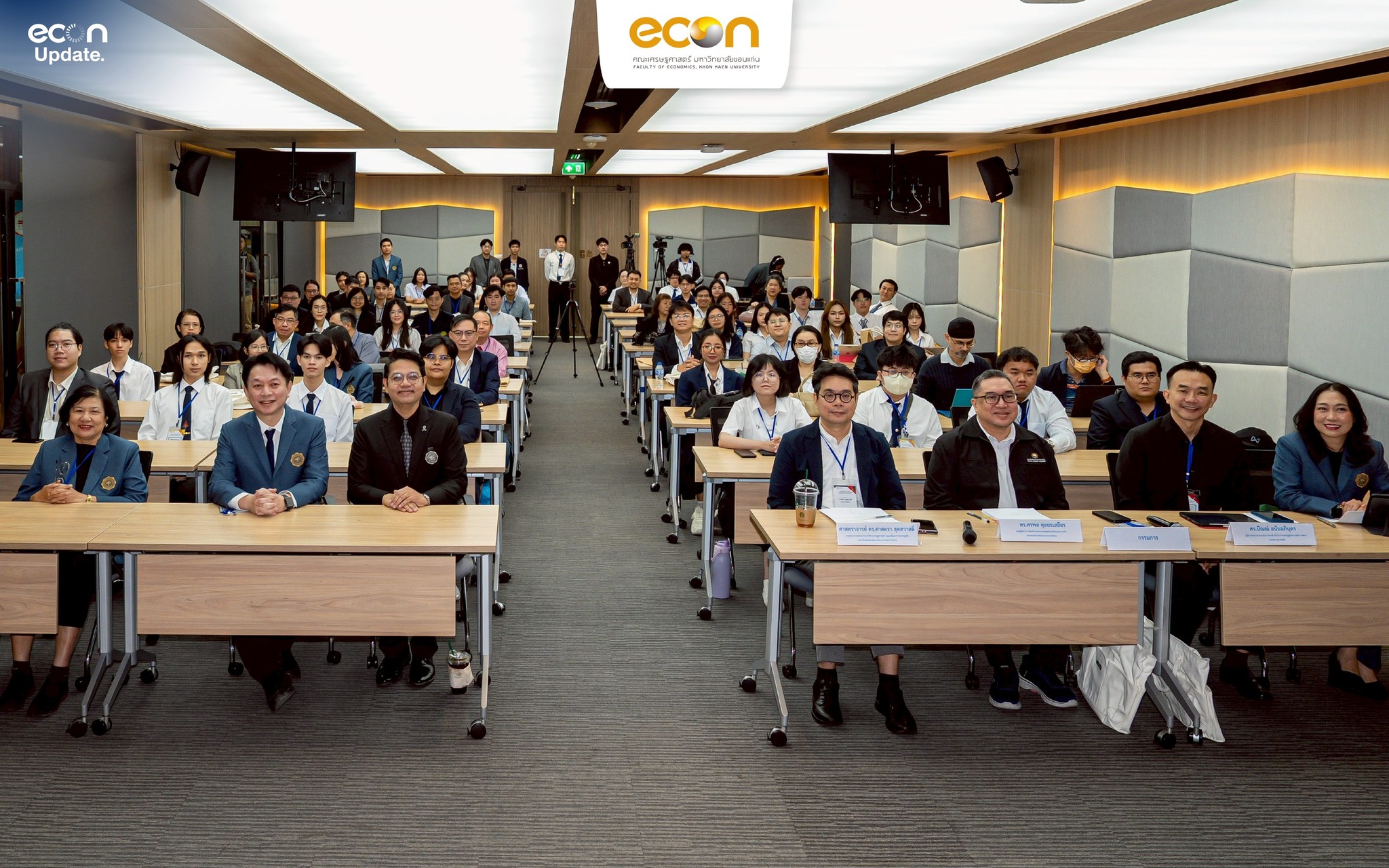On July 16, 2025, the Cholangiocarcinoma Research Institute (CARI), Faculty of Medicine, Khon Kaen University; the Cholangiocarcinoma Center of Excellence, Srinagarind Hospital; and the Health Systems Research Institute (HSRI), in collaboration with national and regional health networks, jointly launched the public health event “Thailand Free from Liver Fluke – No Death from Cholangiocarcinoma.” The opening ceremony, held at the College of Local Administration, Khon Kaen University, was presided over by Mr. Vichai Chaimongkol, Advisor to the Minister of Public Health, and attended by thousands of administrators, health professionals, and members of the public.
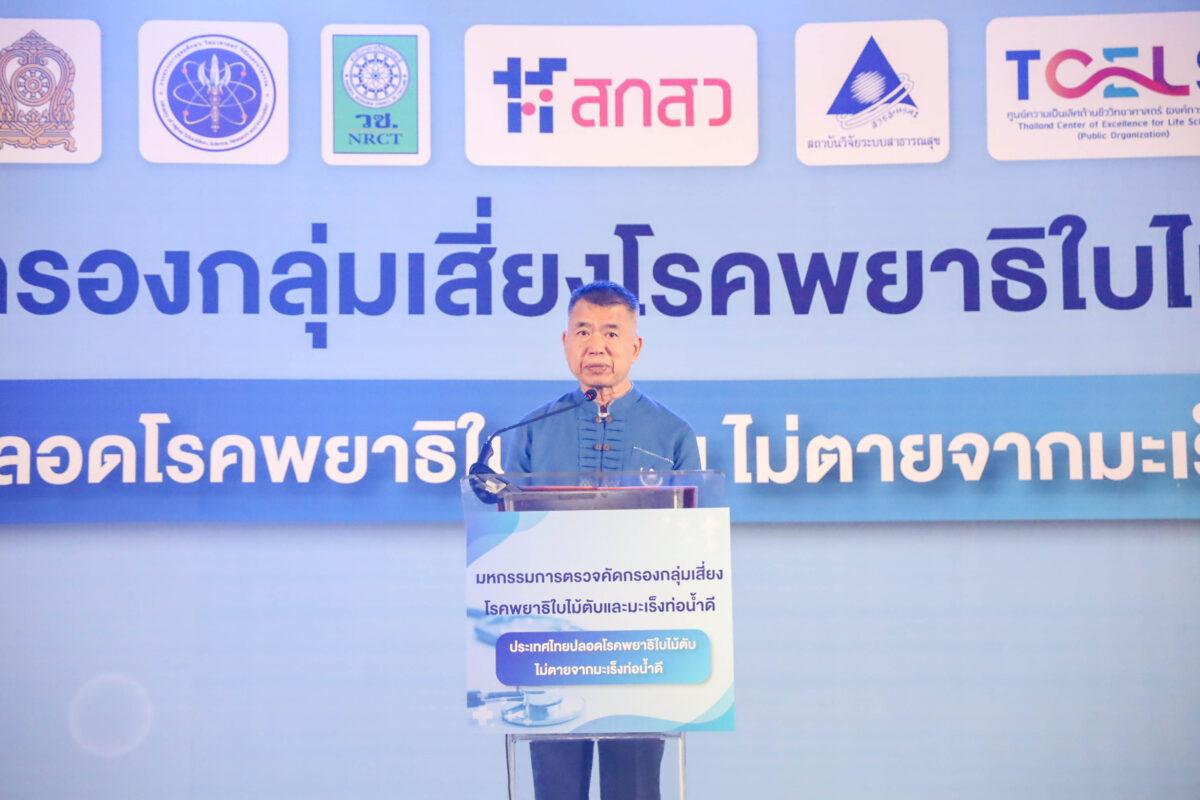

Prof. Thidarut Boonmars, D.V.M., Ph.D., Vice President for Enterprise and Societal Sustainability at Khon Kaen University, delivered the welcome address and emphasized the power of collaboration among government agencies, private sector partners, and communities. She highlighted KKU’s commitment to promoting health literacy alongside scientific research in order to protect people, particularly in the Northeast and Northern regions, from liver fluke infections and cholangiocarcinoma (CCA). She also noted that disease prevention efforts like these could significantly reduce long-term healthcare costs.
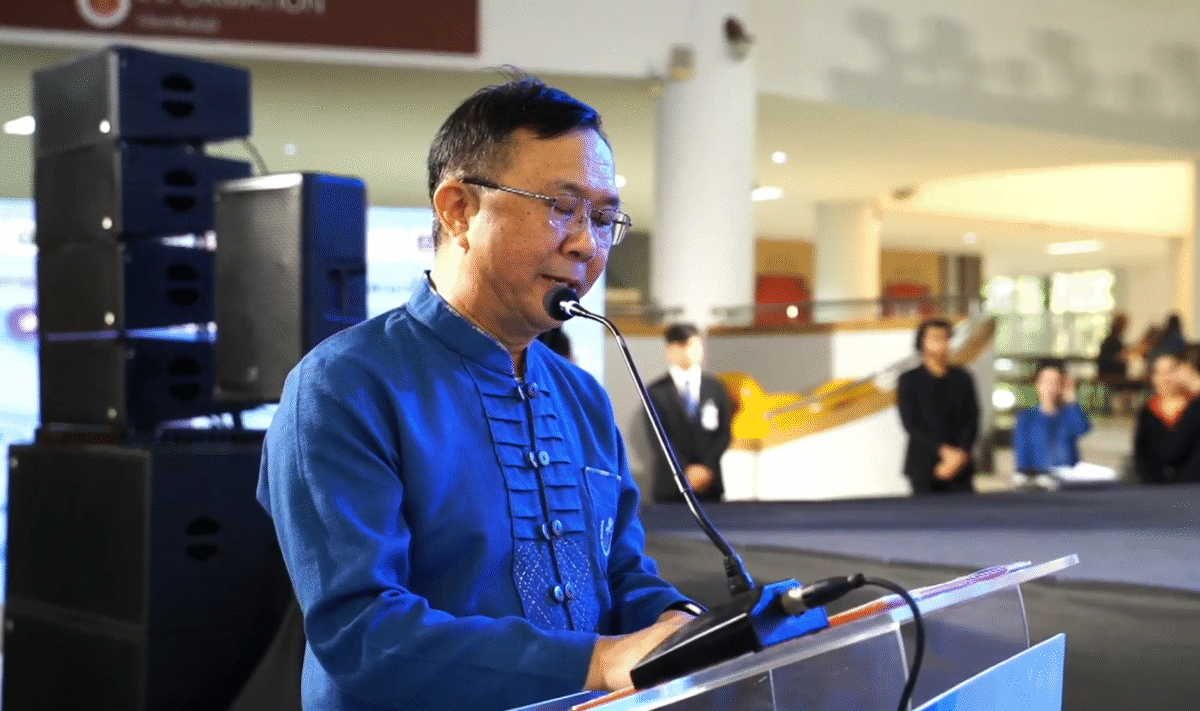
Dr. Supakit Sirilak, M.D., MPH, Executive Director of HSRI, outlined the event’s primary goals. These include reducing the prevalence of liver fluke infection to under 10% within two years and below 1% within ten years. Additionally, the campaign aims to achieve early-stage diagnosis of CCA in over 50% of patients within two years and more than 80% within ten years. The approach combines environmental sanitation education, dietary behavior change, expanded access to screening, and rapid diagnostic tools tailored to high-risk populations.
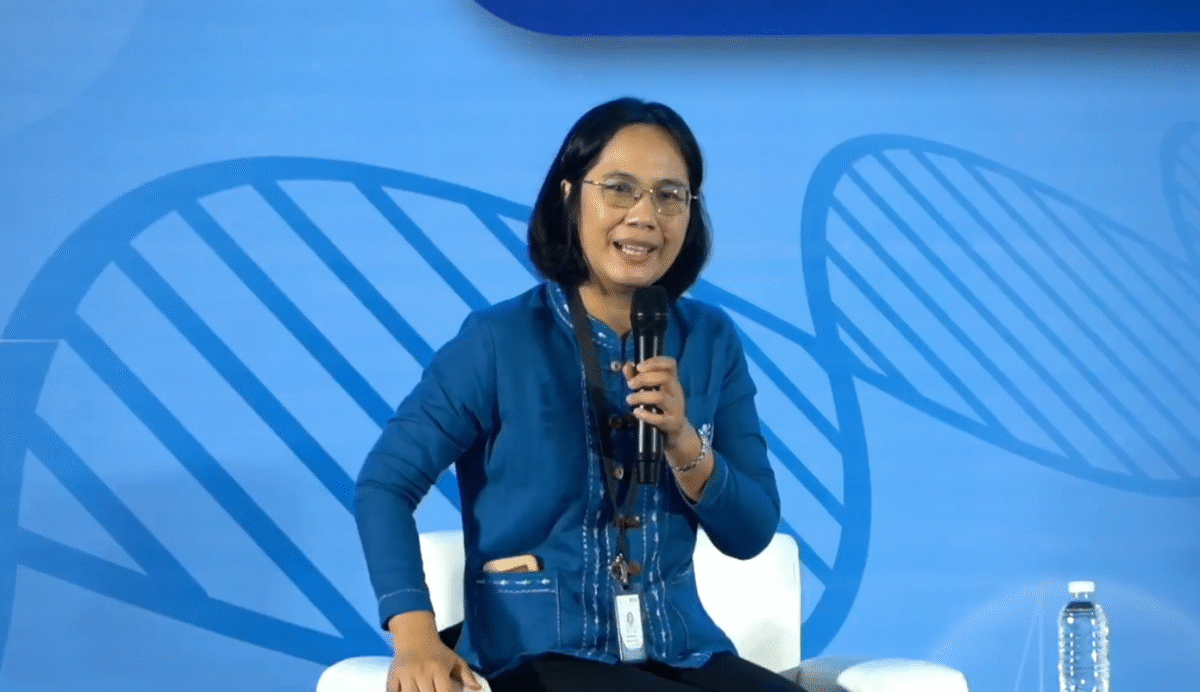
As part of the event, Assoc. Prof. Dr. Watcharin Loilom, Acting Director of the Cholangiocarcinoma Research Institute and Secretary General of the Cholangiocarcinoma Foundation, led screening efforts with the collaboration of public health partners. Screening services included the liver fluke test kit (OV-RDT) for 2,000 individuals aged 15 and above, and ultrasound screening for 600 individuals aged 40 and above with risk factors such as a history of liver fluke infection, prior use of anti-parasitic drugs, or regular consumption of raw freshwater fish. Those found to be at risk were referred to appropriate treatment and follow-up care.
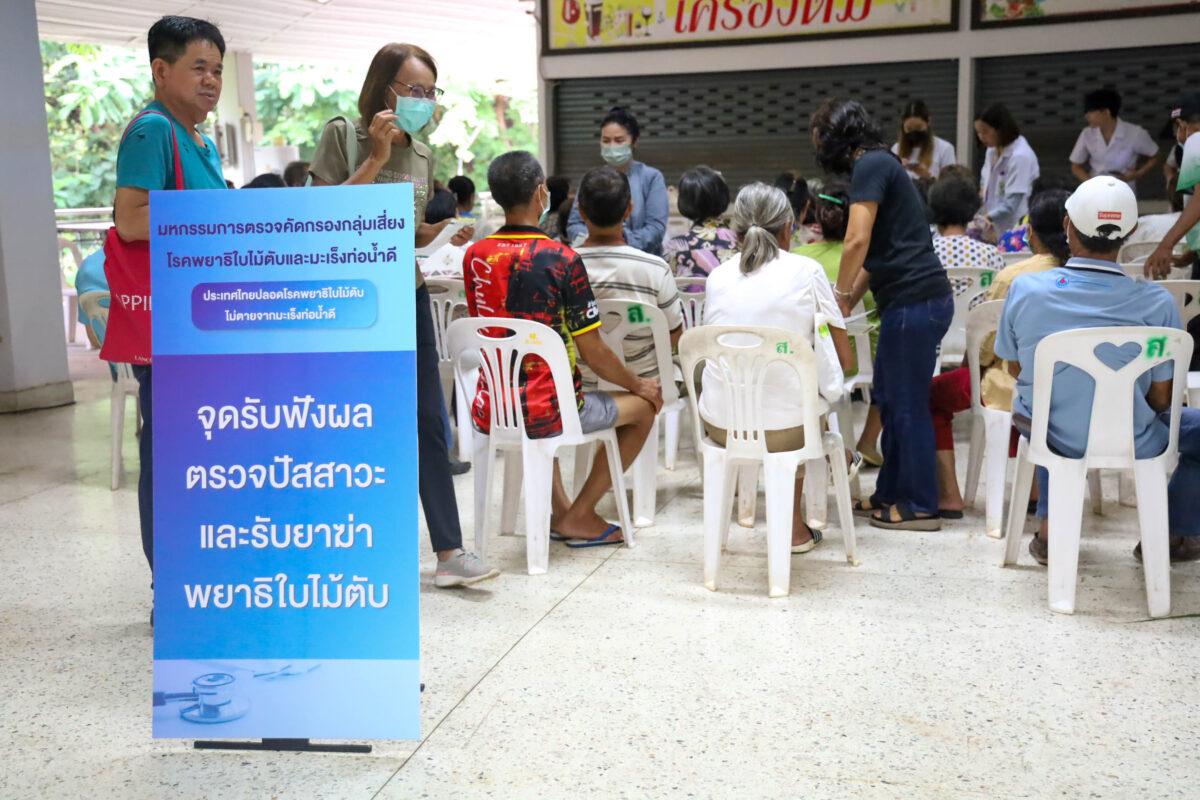
The event also featured a panel discussion titled “Multi-sectoral Collaboration to Eliminate Liver Fluke and Cholangiocarcinoma,” along with exhibitions to raise public awareness about prevention strategies. Topics included safe food consumption, parasite-free fish campaigns, model district projects for environmental sanitation, and the creative use of Mor Lam (traditional Isan folk performance) to build community awareness. Several partner organizations also hosted informative booths, including one by the Faculty of Education, which drew considerable interest.
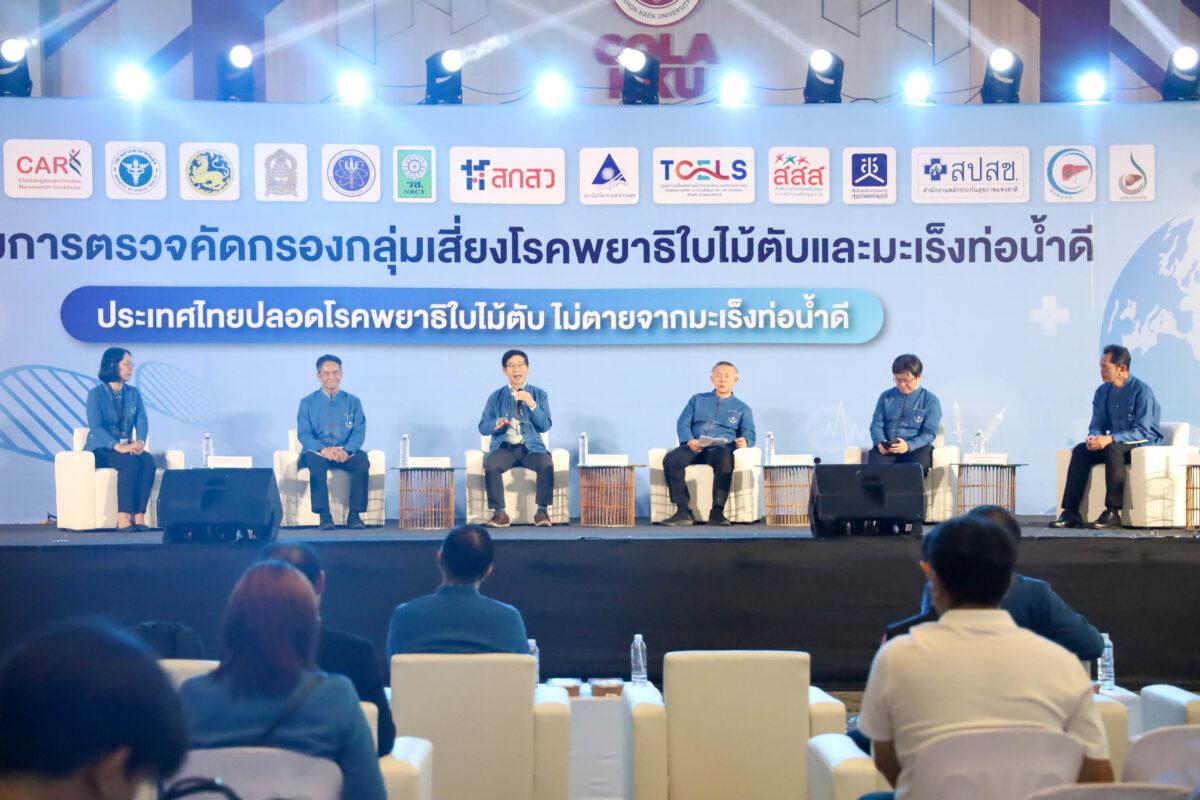
At the education booth, Assoc. Prof. Ladda Silanoi, Assoc. Prof. Dr. Angkana Tungkasamit, and faculty members presented curriculum and learning material development focused on liver fluke and CCA prevention for students ranging from early childhood to secondary levels. These materials are now being piloted in schools across the Northeast and have even been translated into Lao to support teacher training in the Lao PDR.
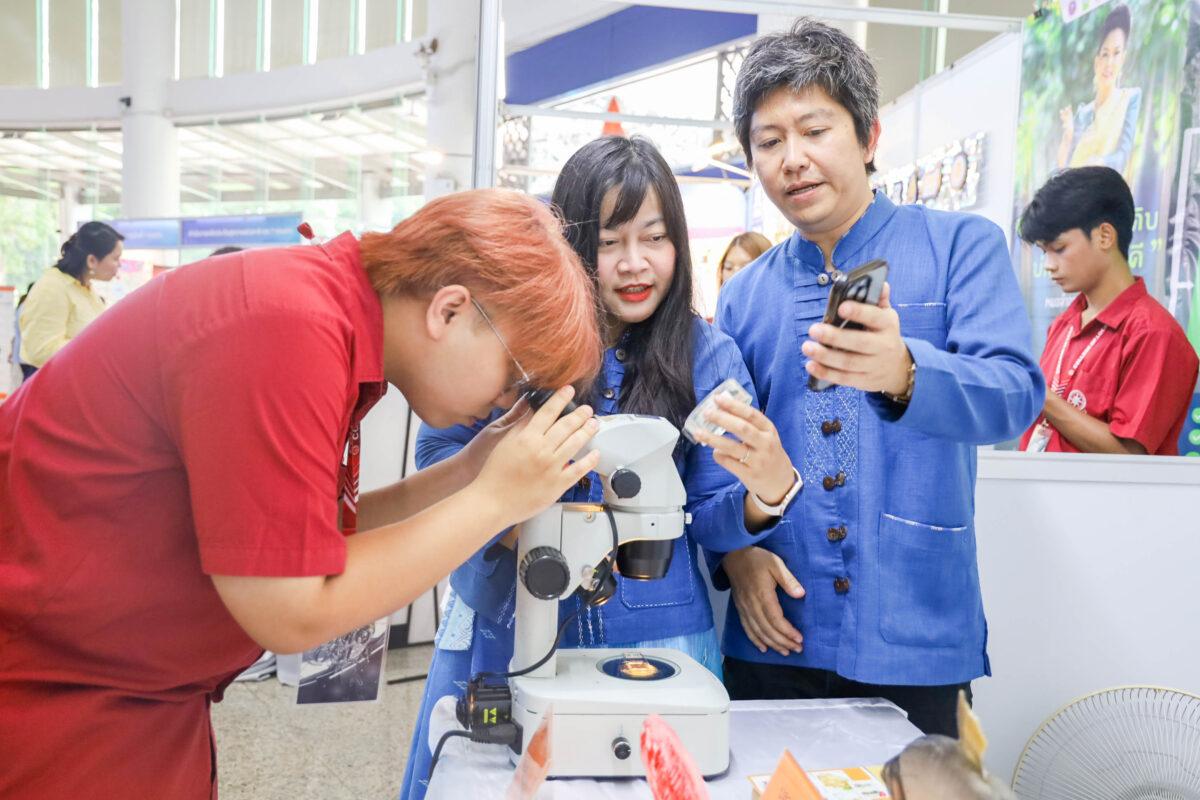
“We work closely with the Cholangiocarcinoma Research Institute to assess at-risk areas and implement this curriculum in real classroom settings,” said one faculty representative. “It’s already being piloted in several provinces—Khon Kaen, Kalasin, Maha Sarakham, and Roi Et—to bring the issue closer to children’s lives. These students can then transfer knowledge and health awareness back to their families and communities. In areas where this curriculum has been implemented alongside screening programs, we’ve seen a noticeable drop in liver fluke infections.”
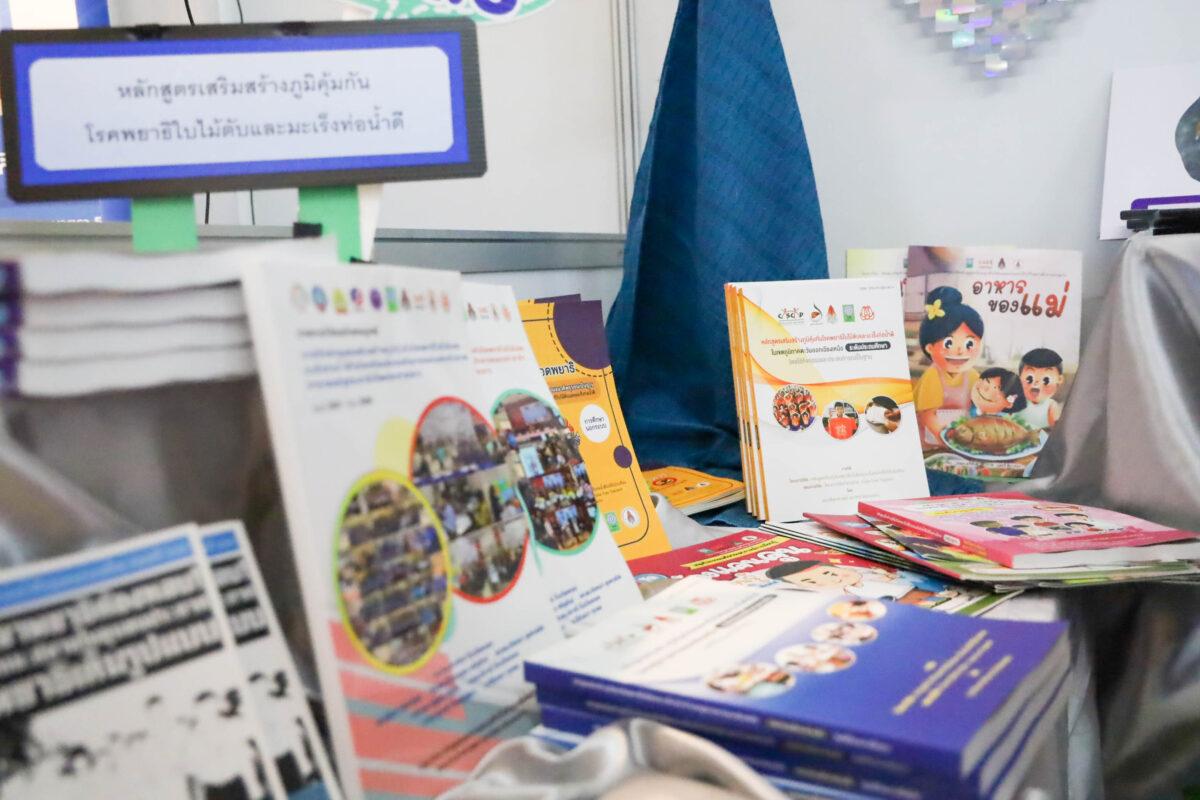
One participant, Mrs. Darunee Bunnaphot, 55, shared her experience: “I came for the screening after hearing about it from my local hospital. I’m thankful that KKU offered both urine and ultrasound tests for free. Although I didn’t test positive for liver flukes or CCA, doctors found early signs of fatty liver disease, which helps me better understand and manage my health. I’d definitely participate in events like this again in the future.”

